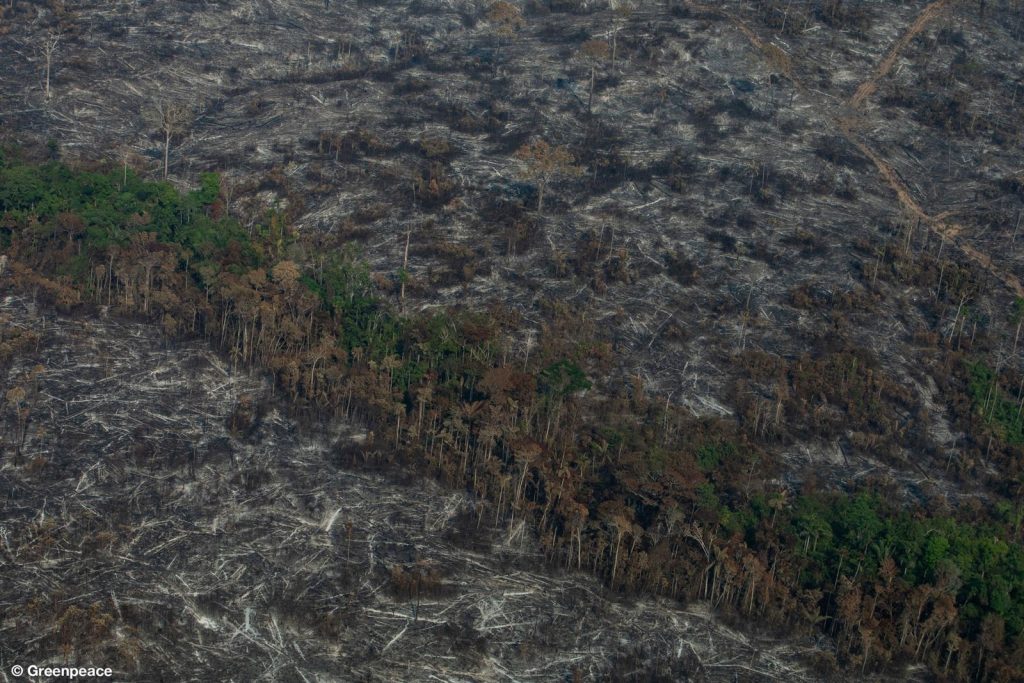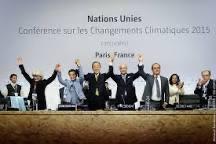Antiquated Nationalism:
Our actions have consequences. Decisions we make and behaviors we execute create situations, social trends and institutions. The rise of the nation-state, for instance, depended on the fall of the church and feudalism. Kings faced the formation of the English Commonwealth in 1649 and the French Revolution in 1789.
Nation-states were at one time an innovation in defining territory and laws to govern people. They depended on clear geographical boundaries, sovereign governments, and individuals to embrace their own national identity. This national identity coupled pride with force and informed a sense of ego. Trump’s campaign statement “Make America Great Again” and his pitch to promote “America First” are examples of the elevation of the U.S. as a nation-state.
Yet, if we can’t get beyond the institution of the nation-state, our future is grim; we’ll die a slow death as the environment of the planet collapses. This is not alarmist politics, it’s a trend that’s unfolding in front of us now—from sea to shining sea globally.

Nowhere is this more apparent than Brazil. In 2018, approximately half the electorate elected Trump’s evil twin, Jair Bolsonaro, President of Brazil. Mr. Bolsonaro was a candidate of the right-wing party Social Liberal Party—nothing social or liberal about it. Their platform, defined by business interests, is pro-censorship, pro-torture of anyone labeled communist, anti-gay, anti-environment, pro-free market economy without limits, and unification of military and civil police.
One can see the rise of nationalism worldwide. Mr. Trump, for example, invited President Bolsonaro, Brazil not only to the White House for formal discussions, but to Mar-a-Lago, his private resort in Palm Beach, Florida for celebration. As an aside, all of Mr. Bolsonaro’s aides, who wore no masks at the reception or dinner tested positive for Coronavirus.

Mr. Bolsonaro has defended the 1964 military dictatorship in the name of the nation and advocated that every citizen should own a firearm at home. Not long ago, he issued an executive order transferring regulation of the environment from indigenous reserves to the agricultural ministry, controlled by agribusiness. An evangelical pastor controls his creation of an Indigenous Agency, FUNAI.
Mr. Bolsonaro is making good on his campaign promise to reduce the power of environmental agencies, and free up mining and commercial farming on indigenous lands, all based on what he believes is good for Brazil. He has positioned non-governmental organizations, groups operating in the country to help reduce poverty or preserving the environment, as “exploiters”.
Mr. Bolsonaro’s policies have encouraged farmers to clear land in the Amazon for farming, which many have done by lighting fires. The Brazil Institute for Space Research has reported 72,843 fires in the Amazon this year, up 84 percent over last year. When Mr. Bolsonaro admitted to the world that he lacked the resources to fight the fires, he refused help from other nations to contain them.

Of concern is that the Amazon in Brazil accounts for 20 percent of the world’s freshwater; offers a major source of carbon sequestration, and habitat for over 34 million people in a region half the size of Europe. Its biodiversity is unequaled in the world.
The nation-state, as constructed, however, is degrading the global environment and deepening the problems that we face collectively. Given our ability to create new institutions, we can do better with what we have inherited.
Integrated World–Gaia For Life:
Today, we live in an integrated world where technology and all the major problems that we face transgress national boundaries. Consider Covid-19, depletion of food sources in our oceans, global warming including unpredictable weather patterns and melting of polar ice caps and migrations of mass populations due to political violence, to mention a few shared problems.
In this new world, we are intrinsically connected to each other, as someone else has already breathed the very molecule of oxygen that you are breathing. There is nowhere to run or hide.

James Lovelock, an English scientist and environmentalist, gave us a way to think about this new world in the late 1960’s. He coined the term Gaia hypothesis, derived from ancient Greek meaning land or Earth. Simply put, it maintains that the Earth functions as a giant self-regulating mechanism as if it were a single organism.
While the Gaia hypothesis may or may not be testable based on standard practices of science, it works as a powerful metaphor to help guide our actions and beliefs. There is a direct relationship between the particular—- burning fires and destruction of the Amazon—and the universal— the biology of the planet and global environment. We know the Amazon, using the Gaia hypothesis as a metaphor, as the lungs of the Earth.
Mr. Bolsonaro has threatened any country that tries to interfere in his control over the development of the Amazon. He recently fired a verbal warning against presidential candidate Biden due to Biden’s comments that the world has a right to be concerned about the Amazon.
This in spite of the fact that scientists have recently alerted us that destruction of the Amazon will also release new diseases as they jump from animals to humans. They have identified several scenarios that demonstrate the solid probability of creating new pandemics.
Yet, Mr. Bolsonaro, like his evil twin Trump, still promote the nation- state as a determining factor to address the issues that we all face. The nation-state needs to be transformed into a body of laws and governance that address particular and universal problems simultaneously.
New Institutions:
New institutions and methods of cooperation are required to govern our planet, beyond the current United Nations—-or a UN that is reformed. Unfortunately, the UN as it stands now is riddled with politics and control concentrated in the hands of a few countries, which have veto power over transnational issues, policies and actions. For example, the U.S., China, and Russia hold the power to veto any suggestions that may pose a threat to their perceived national interests.
The move away from the nation-state as the defining instrument of identity and power is causing major anxiety among large populations of citizens as well. This is fueling psychological and economic defenses to put forth nationalism at precisely the point that we need international decisions and solutions. Trump and Bolsonaro, along with so many antediluvian leaders, are leftovers from an era when nationalism might have solved problems facing local populations.
The problem is that many voters identify with their outdated appeals to the national interest to quell their anxieties of change. Many individuals, it’s worth recalling, remained loyalists to kings and queens; they too fought change and participated in wars to protect a dying monarchy. This resistance to change in national identity can be seen in the fact that almost every country is split into blocks of voters that want change and those that don’t, along the lines of 52-48 percent or vice versa.
The good news is that we have examples of shared governance of critical resources, for example, the North and South Poles for scientific research and collective governance. These areas are critical because they control the climate of the entire planet; and while many countries have planted flags and indigenous populations inhabit the land, it is possible to share governance and scientific research.
Critical areas of the environmental impact that we all depend on for sustenance include oceans, North and South poles, Amazon rainforest, and the vast plains of the Earth. These belong to all humanity and need to be managed as a shared resource and treasure.
Farmers in the Southern part of the U.S. under global management that limited pollution would not have private rights to discharge high level of fertilizer into river ways that end up in the ocean, creating an over 7,000 square mile dead zone devoid of oxygen for fish or other living organisms. This can easily be spotted from space and managed collectively to help life return to the ocean.

New Laws:
Attempts at new directions in governance have resulted in such things as The Paris Agreement on climate change to lower greenhouse-gas-emissions, signed in 2016. It was accomplished under the framework of the United Nations. The only problem is that adherence to its standards is voluntary. The results of voluntary adherence are clear: countries avoid limits or pull out of the Agreement at will, like the U.S. Greenhouse gasses and climate warming are not under control, and nowhere near the limits that were set.

Why is it that current laws fail to apply to environmental criminals? They do more damage to the world in one year than all the crimes of petty theft together.
A global governing body is required that can draft, and execute laws that protect the world’s shared resources. Countries are compelled to join our loose trade rights. This governing body must be capable of charging and adjudicating corporate and government leaders for violation of environmental laws at scale. For example, Jamie Dimon of JPMorgan who oversaw $192 billion worth of investments in the fossil fuel industry should be tried for criminal environmental negligence; or Mr. Bolsonaro for his role in igniting the Amazon.
Staying stuck in the jaws of nationalism is a continued recipe for global disaster. New environmental laws with teeth and a global organization with the powers of enforcing them, adjudicating environmental criminals, freezing assets, and creating trade barriers for violators has to be enacted to protect all of us and the natural world which we depend on for inspiration and sustenance.
